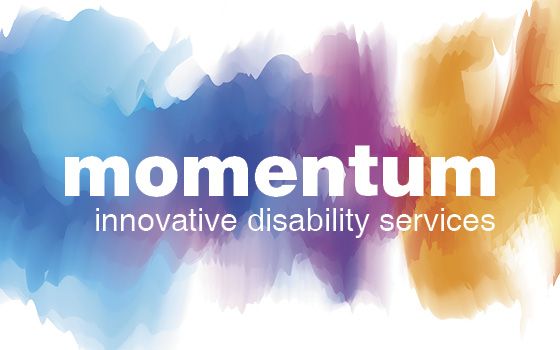
Understanding the DSP Workforce Crisis
 For many organizations like UCPLA, Direct Support Professionals (DSPs) are the backbone of what they do. DSPs specialize in supporting individuals with Intellectual and Developmental Disabilities (IDD) so that they can live more independently in a community instead of a state institution, which for decades was the norm. Many DSPs become a part of the individual’s family, establishing a deep bond. They also assist them with their daily tasks and medical needs, give employment support, and help them to flourish in their community.
For many organizations like UCPLA, Direct Support Professionals (DSPs) are the backbone of what they do. DSPs specialize in supporting individuals with Intellectual and Developmental Disabilities (IDD) so that they can live more independently in a community instead of a state institution, which for decades was the norm. Many DSPs become a part of the individual’s family, establishing a deep bond. They also assist them with their daily tasks and medical needs, give employment support, and help them to flourish in their community.
Unfortunately, even though DSPs play such a vital role in the lives of people with IDD and the organizations they work with, there is a giant wage discrepancy. Due to the low salaries, many DSPs need public assistance and/or must work multiple jobs to cover their expenses, neither of which are in the best interest of those being served or the DSP. In addition, low wages make the hiring and retention of qualified DSPs very difficult, with an average turnover rate of approximately 45%. This is also not an ideal situation for the individuals being served or the organizations. This issue has been a hot topic throughout the industry, especially because the need for DSPs is on the rise.
U.S. Senator Maggie Hassan (D-NH) has announced her intention to introduce legislation to create a Direct Support Professional Standard Occupational Category (SOC) at the U. S. Bureau of Labor Statistics. Currently, the U.S. Bureau of Labor Statistics (BLS) considers DSPs under a larger category of personal care aides and home health aides – which, combined, are the fastest growing careers in the country, requiring over 1 million new workers over the next decade. However, DSPs are unique – they are funded by the Medicaid program, unlike the broader personal care aide and home health aide workforce. Therefore, there has been a call for DSPs to have a separate Standard Occupational Classification (SOC) at the BLS, so that they can better understand how federal health programs invest in this essential workforce.
A SOC for DSPs would help provide the data that policymakers need at the state and federal level to better understand the DSP workforce. States heavily rely on SOC data to determine what rates they will pay private disability service providers to provide disability supports. Without accurate federal data, states must guess what to reimburse to these private providers.
This issue is particularly important in California, as we are an entitlement state in which the state government guarantees citizens with IDD community-based case from diagnosis through the course of their lives. This means that the state sets reimbursement rates, in accordance with federal rates, for our services, including the amount we get reimbursed for what we pay our dedicated DSPs. These inadequate reimbursement rates make it extremely difficult for a provider, even one with the large size and strong financial history of UCPLA, to significantly raise compensation rates for our DSPs without action at the state reimbursement level.
The services providers like UCPLA and our DSPs provide are not a luxury for the IDD community but a civil right. We are hopeful for the future. It is a good sign that this issue is being discussed and that our government is making steps to right it, especially with the DSP industry on the rise. It’s important for everyone to stay informed and spread the word on this very important issue.
If you are interested in making a difference and getting involved learn more about out to our new Valued Employee Program HERE.
To read more policy updates, sign up for UCPLA’s Policy & Advocacy newsletter.